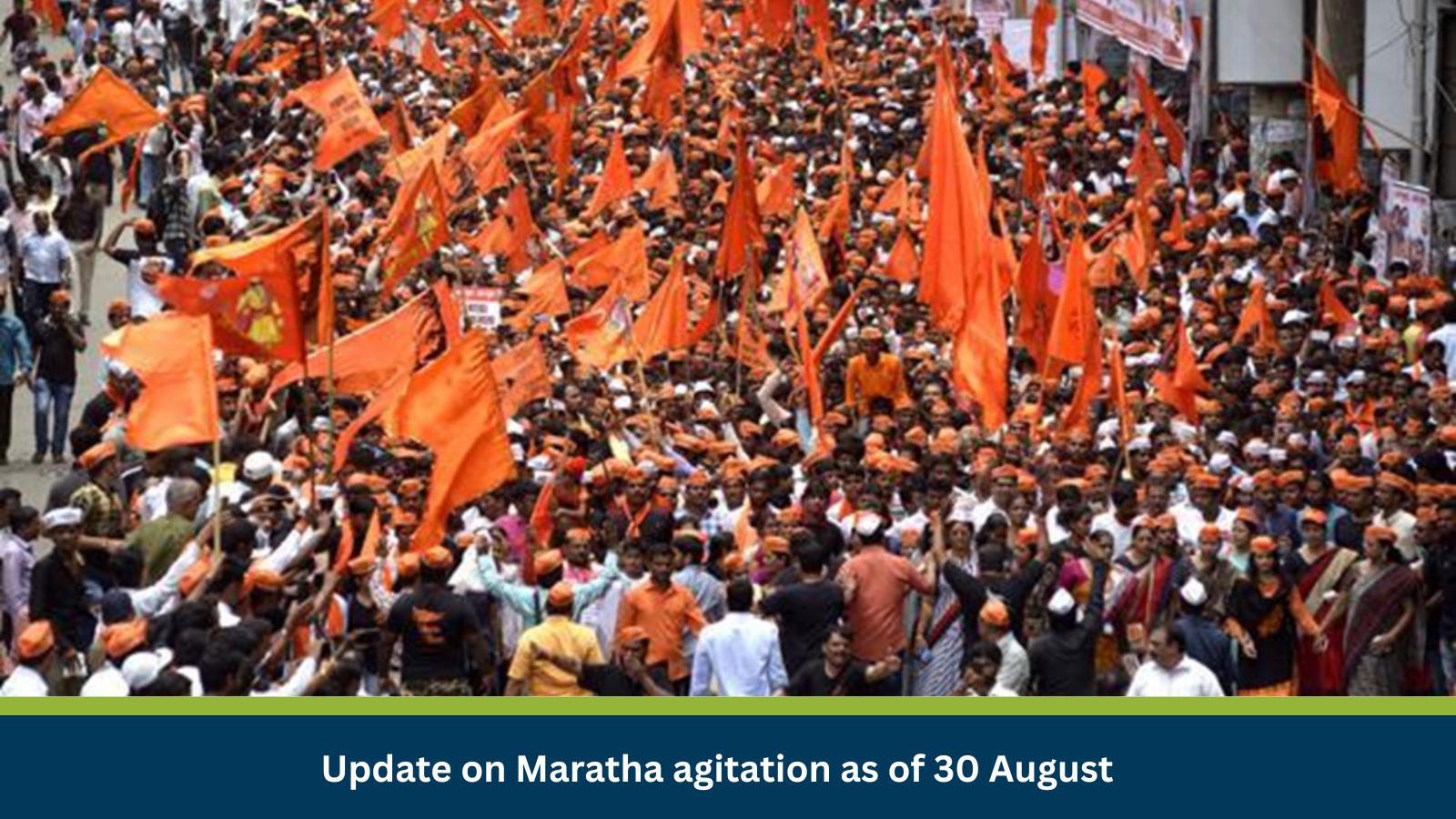What is Risk Analysis in the Context of Civil Disturbance Events?
A civil disturbance refers to a public gathering that disrupts the normal functioning of a community. In the context of the Maratha agitation, risk analysis helps organizations prepare for operational challenges related to logistics, personnel movement, and asset protection. This event draws from a historical pattern of large-scale demonstrations in metropolitan areas. The current situation, marked by heavy police deployment and challenges to essential services, mirrors past events.
Executive Summary
- Date of Incident: 30 August 2025
- Location: Fort, Azad Maidan, Mumbai, Navi Mumbai, Maharashtra, India
- Risk Category: Civil Disturbance
- Severity Score: 4/5
- Confidence Level: 85%
The Maratha quota agitation in Mumbai continues to pose a significant risk to urban mobility and business continuity. The protest has largely remained peaceful, but its scale and strategic targeting of major transport arteries and government buildings historically lead to considerable logistical and economic friction. The leader, Manoj Jarange, is continuing his indefinite hunger strike at Azad Maidan, vowing not to end the protest until the community’s demands are met.
Known Hotspots and Sensitive Areas
High-impact zones include Azad Maidan, Mantralaya (Maharashtra State Secretariat), Chhatrapati Shivaji Maharaj Terminus (CSMT), and the Brihanmumbai Municipal Corporation (BMC) headquarters. These areas are central to South Mumbai’s administrative and transport functions. The protest has caused major road closures, including the Eastern Freeway and Sion-Panvel Highway, which are key entry and exit points to Mumbai.
Impact on Transportation and Services
- Travel & Mobility: The protest has caused severe travel chaos, with major roads like the Eastern Freeway and Sion-Panvel Highway closed and traffic at a standstill, directly impacting daily commutes and inter-city travel. While local train services have not been directly blocked, access to stations in South Mumbai is difficult, and reports indicate office-goers face inconvenience due to ‘crowded trains crawling buses’.
- Business Operations: Widespread traffic disruptions and restricted access to commercial hubs in South Mumbai significantly impede daily business activities, customer access, and employee commute. The protest has caused temporary closures and event cancellations for businesses in affected areas.
- Supply Chain & Logistics: Road closures and heavy vehicle bans in and around Mumbai severely disrupt the movement of goods, leading to delivery delays and increased operational costs.
- People Safety: While currently largely peaceful, similar past protests have seen minor clashes and baton charges, indicating a moderate risk of injury to protestors and bystanders.
- Regulatory & Legal: The protest operates under extended police permission with conditions; any deviation could lead to legal repercussions, detentions, or escalated enforcement actions.
- Asset Security: Historically, Maratha protests have primarily focused on peaceful assembly and traffic disruption, with a low risk of deliberate asset damage or vandalism.
- Communications & IT: While no direct threats are reported, large gatherings can cause localized network congestion, potentially impacting mobile communication services in protest areas.
- Infrastructure & Utilities: No direct damage to critical infrastructure or utilities is anticipated; however, prolonged disruptions could hinder routine maintenance or emergency access to services.
Recommended Actions
- Activate a mandatory ‘Work From Home’ policy for all non-essential personnel in Mumbai for Saturday (30 August), advising employees to avoid protest affected areas. For essential staff, provide real-time public transport advisories and company-sponsored transport with pre-vetted safe routes.
- Proactively monitor local law enforcement advisories and traffic updates in Mumbai. Reroute all inbound and outbound logistics, leveraging alternative transport hubs or delaying non-critical shipments.
- Elevate security protocols for all physical assets (offices, retail stores, distribution centers) within Mumbai, especially in anticipated protest zones.
- Establish a central crisis response team to continuously assess the situation and disseminate timely internal updates.
Emergency Contacts
- Police: 100
- Fire Department: 101
- Ambulance: 102
- National Emergency: 112
- Official Channels:
Final Thoughts
The baseline scenario anticipates the protest continuing with ongoing negotiations, but a moderate escalation could see the protest intensify with spontaneous road blockades. The leader’s statement that he will not back down until demands are met and his warning to stop drinking water in the coming days suggest a potential for prolonged agitation and increased volatility. Businesses should prepare for the baseline scenario while being mindful of the potential for escalation. Early warning systems and preparedness tools can help businesses stay ahead of operational risks with real-time alerts and scenario modeling.
Stay ahead of operational risks with real-time alerts, scenario modeling, and expert advisories with datasurfr’s Predict. Start your 14-day free trial of Datasurfr’s Risk Intelligence Platform today.






